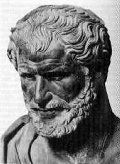GLOSSARY OF IMPORTANT CHEMICAL DEFINITIONS
- Atom: The smallest part of an element; composed of neutrons, protons and electrons.
- Molecule: Persistent ensemble of atoms with a unique connectivity between the constituent atoms; smallest unit of a compound that can exist independently.
- Compound: Pure substance made up of different elements combined in a definite way. Compounds can be further broken down into elements.
- Element: A substance that cannot be further divided by chemical means. An element is defined by its atomic number (nuclear charge and number of electrons in the free atom).
- Mole: Number of carbon atoms in exactly 12 grams of carbon-12. One mole of any substance contains 6.022 x 1023 (Avogadro’s Number) molecules, atoms or ions.
- Nucleus: Small but massive internal core of the atom in which is concentrated the mass and positive charge. The nucleus is composed of neutrons (zero charge) and protons(+1 charge).
- Electron: Smallest particle of negative charge; forms an integral part of every atom.
- Matter: Anything that has mass and occupies space. The three most important phases of matter that earthbound chemists deal with are solid, liquid and gas. Ion: An atom or group of atoms that has gained or lost one or more electrons and thus carries a negative or positive charge.
 Democritus c. 400 BC Democritus was one of the early Atomists. He reasoned that things were composed of tiny, indivisible particles. |